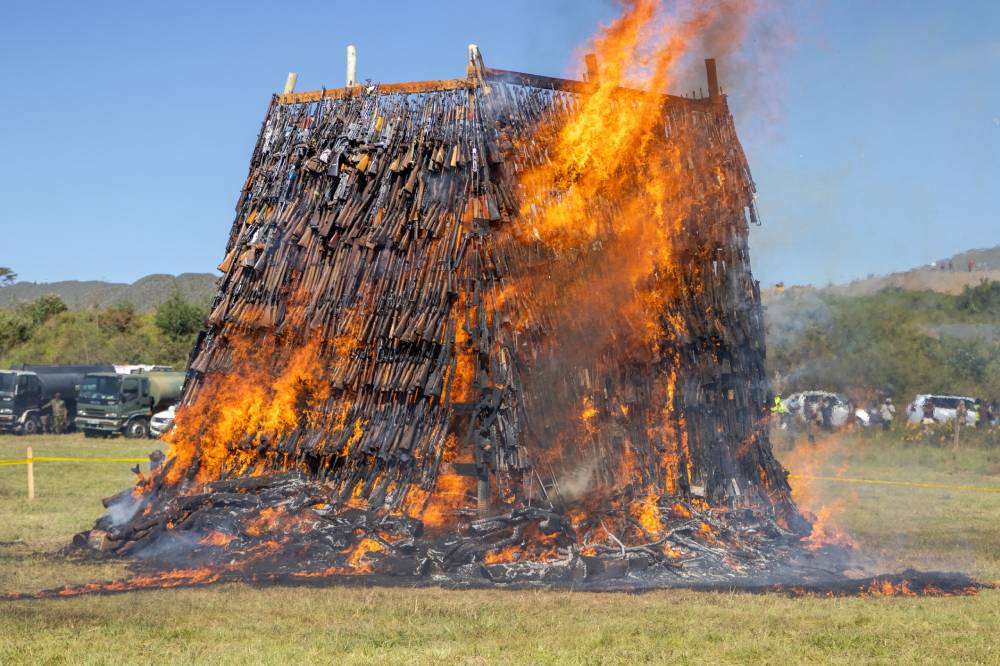Two decades after its adoption, the Nairobi Protocol remains a cornerstone of small arms control in the Great Lakes Region, Horn of Africa, and Bordering States. But today, rising threats ranging from armed non-state actors to drone warfare demand a new response.
To future-proof the protocol, UNIDIR and the Regional Centre on Small Arms and Light Weapons (RECSA) have launched a landmark project assessing the implementation of the Nairobi Protocol and its review. This initiative aims at bolstering national and regional arms control efforts, fostering regional cooperation and reducing the human suffering caused by armed conflict, crime, terrorism and gender-based violence fuelled by illicit arms.
A milestone for regional security
The Nairobi Protocol for the Prevention, Control, and Reduction of Small Arms and Light Weapons (SALW) in the Great Lakes Region, Horn of Africa, and Bordering States entered into force in April 2005 – marking a pivotal moment for regional security. This legally binding agreement unites 15 Member States—Burundi, Central African Republic, Republic of Congo, Democratic Republic of Congo, Djibouti, Ethiopia, Eritrea, Kenya, Rwanda, Seychelles, Somalia, South Sudan, Sudan, Tanzania and Uganda—in a shared commitment to curb the illicit proliferation and misuse of SALW.
A couple months later in June, RECSA was established to build the capacity of States and coordinate the implementation of the protocol. On the occasion of RECSA’s 20th anniversary, Kenya hosted its 11th Council of Ministers Meeting, 16th Meeting of the Technical Advisory Committee, and a symbolic destruction of over 6,000 illicit and obsolete firearms, led by H.E. Dr William Ruto, President of Kenya. Member States reaffirmed their commitment to strengthening the implementation of the Nairobi Protocol. President Ruto has also pledged that Kenya will ratify the Arms Trade Treaty (ATT) and implement SALW control instruments, signalling regional momentum for reform.
During these meetings, RECSA’s Executive Secretary, Jean Pierre Betindji, emphasized that, “after 20 years of implementation of the Nairobi Protocol, our region is facing new challenges in the area of arms control, and Member States are expected to go through the Protocol to see how to strengthen it to include new areas of intervention”.
Responding to emerging security challenges

The Council of Ministers also adopted a report calling for a comprehensive review of the protocol to strengthen its impact. In response, UNIDIR and RECSA have launched a joint project titled “Reviewing and Strengthening the Implementation of the Nairobi Protocol,” funded by the UK’s Foreign, Commonwealth and Development Office. This initiative will deliver the first comprehensive review of the protocol’s implementation at the national and regional levels, proposals to strengthen the Nairobi Protocol and related best practice guidelines, and key elements for an implementation action plan.
Anchored in RECSA’s mandate to coordinate effective SALW control and UNIDIR’s commitment to evidence-based disarmament, the project embodies a critical leap forward in tackling arms proliferation in Africa.
Dr Paul Holtom, Head of UNIDIR’s Conventional Arms and Ammunition Programme

The project will identify common challenges, effective practices, and emerging threats, which will inform the review of the Nairobi Protocol. To date, there has been no evaluation across all RECSA Member States on the progress made in implementing the protocol’s provisions, such as regulating civilian possession (Article 5), marking and tracing SALW (Article 7), or for voluntary surrender programs (Article 12).
At the same time, the region is confronted by new security challenges, such as the use of uncrewed aerial systems for attacks on security forces and civilians by non-state actors. Yet, there are also new opportunities for enhancing controls and counter-diversion and trafficking efforts, leveraging new technologies, international cooperation, and assistance arrangements under the ATT and the Global Framework on Through-Life Conventional Ammunition Management. Taken together, these developments necessitate a review to ensure the Protocol remains fit for purpose in addressing modern security challenges effectively.
A joint effort to tackle illicit small arms and light weapons proliferation and misuse
This landmark review comes at a critical juncture for the Great Lakes Region, Horn of Africa and Bordering States. The review of the Nairobi Protocol is not only about commemorating 20 years of progress; it’s about ensuring the Protocol’s next 20 years are equally impactful. In addressing new threats, closing existing gaps, and modernizing its approach, the review—led collaboratively by the 15 Member States, RECSA Secretariat, and partners—offers a vital opportunity to enhance small arms and light weapons control across the region.
The project’s outcomes will equip key stakeholders with the knowledge, tools and frameworks needed to strengthen national and regional controls. By the end of 2025, the review’s initial findings will be shared at a multistakeholder conference, followed by the release of a report and scorecard in early 2026, which will highlight effective implementation measures, common challenges, and new opportunities for addressing the trafficking, diversion and misuse of conventional weapons in the RECSA region.
The initiative will foster information sharing and cooperation across the Great Lakes Region, Horn of Africa and Bordering States, aligning with the Protocol’s objectives to enhance regional peace, security and development – and building on RECSA’s two decades of collaborative efforts. UNIDIR is delighted to join RECSA on this journey to strengthen the Nairobi Protocol, promising a renewed framework to combat illicit arms proliferation and promote lasting peace across the region.


